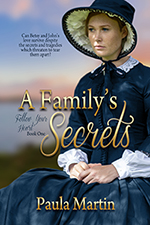The Queen
Only two days earlier, she had been photographed asking our
new Prime Minister to form a government. True, she looked frail, but we still
didn’t expect her to die two days later.
For the majority of people, she was the only sovereign they
had ever known. I am actually in the minority, as I do remember her father,
King George VI. The Brownie ‘Promise’ I made when I was seven included the
words “To serve The King and my country.” About a year later, the head teacher
came into my school classroom to inform us that the King had died. I only
remember seeing black and white newspaper photos of his funeral.
The following year, there was great excitement about the Queen’s
Coronation. Streets were decorated, and street parties were held. My mother had
a wool shop and I helped her make a display for the window, with the Union Flag
in red, white and blue balls of wool surrounding a photograph of the young
Queen.
On the actual day people crowded into the homes of those who
actually owned a television, which were few and far between at that time. My
parents arranged for me to visit a friend of theirs who did have a television
set, and so I watched the Coronation on a black and white, nine-inch TV screen.
As a nine-year-old, I confess to becoming somewhat bored by the lengthy
ceremony, apart from the actual crowning when everyone shouted ‘God Save the
Queen’. After that a few friends and I went out to play in the garden, but we
were called back to watch the newly-crowned Queen return to Buckingham Palace
in the ornate state coach.
Ten days after the Coronation, we had a school trip to London, at that time a five-hour journey by train. I’m not sure how our teachers coped with about thirty excited youngsters, but we went to Westminster Abbey and also saw all the decorations in the streets, especially the huge arches in the Mall.
We were outside Buckingham Palace, where a lot of people
seemed to be congregating on the pavements. One of my teachers asked a
policeman what was happening, and was told the Queen and the Duke of Edinburgh
were due to arrive back from a visit to Greenwich. The policeman then allowed
us to climb into one of the VIP stands which had been erected outside the
Palace for the Coronation. As a result, we had a wonderful view of the Queen
when the open carriage came round the Victoria Memorial and entered the Palace
forecourt.
That was my first sight of Queen. Since then, I’ve seen her
three more times, and on one occasion I met and spoke to Prince (now King) Charles, but I’ll
tell you more next time!
Find me on Facebook: www.facebook.com/paulamartinromances
Link to my Amazon author page: author.to/PMamazon













